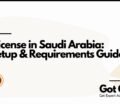
Understanding import regulations in Saudi Arabia is essential for businesses navigating customs clearance, certification, tariffs, and compliance. With growing trade under Vision 2030, Saudi is emphasizing safe, transparent imports. This guide covers licensing, SASO certification, customs duty rules, document requirements, prohibited items, penalties, port procedures, inspection protocols, and post-import processes.
Import Regulations in Saudi Arabia – Legal Framework Overview
Saudi’s import regulations in Saudi Arabia stem from customs law, Ministry of Commerce, SASO, and food and agriculture authorities. Together, they form a regulatory environment covering product safety, tariffs, licensing, and border inspections.
Regulatory Agencies Involved
The Saudi Customs Authority handles clearance, while SASO issues safety certificates for many goods. Food, pharma, and agriculture fall under SFDA (Saudi Food and Drug Authority). Each ministry enforces rules relevant to imports.
Objectives of Regulation
The aim is to ensure product quality, national security, health protection, and collection of duties—while enabling legitimate trade.
Saudi Import License Requirements and Registration
Before importing, you may need an import license in Saudi Arabia depending on product type.
Who Needs an Import License
Licensed importers are required for regulated goods like cosmetics, chemicals, and food items. Others may import under a commercial registration (CR) if activity permits.
Applying for a Commercial Registration
Obtain a Saudi company CR with import activity encoded. If required, register with SASO or SFDA and obtain licensing numbers prior to shipment arrival.
SASO Import Certification Saudi Arabia (Product Standards Compliance)
Many import products require SASO import certification Saudi, ensuring conformity with local standards.
SASO Quality Mark and Energy Label Requirements
Electronics, appliances, cables, and other regulated goods must carry SASO conformity marks and energy labels before clearance.
Pre-Shipment Inspection (PSI)
Some shipments must undergo PSI at origin—documents and samples are checked to verify compliance before export to Saudi.
Saudi Import Documentation Requirements
Accurate Saudi import documentation is critical to avoid delays or rejection.
Mandatory Paperwork for Customs Clearance
Common required documents include: commercial invoice, packing list, bill of lading or airway bill, certificate of origin, SASO or SFDA approval, Saudi import license, insurance certificate, and consignee details.
Document Attestation and Translation
Certain documents (like certificate of origin) may need attestation by Saudi consulate. Translation into Arabic is often necessary for invoice and label information.
Saudi Customs Duty Rates and Tariff Rules
Understanding Saudi customs duty rates helps budget correctly.
Standard Duty Schedule
Most items incur 5% import duty, based on CIF value. Some categories—like luxury goods or tobacco—have higher duty rates, while essential products may be zero‑rated.
VAT and Additional Government Fees
In addition to customs duty, a standard 15% VAT applies on CIF value + duty. Other fees may include inspection or port service charges.
Prohibited and Restricted Imports in Saudi Arabia
Saudi has strict lists under import regulations in Saudi Arabia.
Prohibited Items (Absolute Ban)
Items like pork products, weapons, certain pharmaceuticals, adult content, or religiously sensitive materials are absolutely prohibited.
Restricted Imports Requiring Permits
Goods such as food, chemicals, electronics, medical devices, and telecom equipment require pre-approval or permit from SFDA, CITC, or other agencies.
Customs Clearance Saudi Arabia – Port and Cargo Procedures
Step-by-step clearance under Saudi customs protocols.
Pre-Arrival Processing (E-Manifest Submission)
Importers or brokers must upload cargo details electronically before arrival to start clearance process.
Inspection, Sampling, and Release Process
Customs may inspect shipments, scan containers, or requisition samples for SASO/SFDA testing before goods are released for delivery.
Inspection and Testing Requirements for Import Goods
Many goods must pass inspection before being allowed entry.
SASO or SFDA Laboratory Testing
Samples may be tested in approved labs for hygiene, safety, or chemical compliance. Without passing tests, clearance may be denied or goods returned.
On‑Site Inspection by Authorities
Food shipments, pharmaceuticals, or industrial equipment may require local inspection before release, especially for perishables or hazardous items.
Import Logistics and Freight Forwarding Guidelines
Working with freight forwarders or logistics firms is common under import regulations in Saudi Arabia.
Choosing Registered Forwarders or Brokers
Importers benefit from licensed customs agents or freight firms to coordinate documentation, clearance and transport.
Warehouse and Local Delivery Coordination
After customs release, goods move to bonded or general warehouses, followed by inland transport or delivery to local buyers.
Penalties and Compliance Risks in Saudi Import Framework
Non-compliance with Saudi import laws can lead to serious consequences.
Penalties for Incorrect Declarations
Fines range from small daily fees to full seizure or blacklisting for misdeclaration, undervaluation, or prohibited item import.
Freight Holding or Entry Denial
Goods without proper certification may be detained, returned, or confiscated at border or port.
Post‑Import Regulations: Labeling, Storage, and After‑Sales
Once imported, further regulations apply.
Product Labeling and Language Requirements
Labels must include Arabic translations, expiry or manufacturing dates, ingredients, and caution statements to comply with local requirements.
Warranty, Storage Conditions, and Recall Protocols
For electronics or food products, local importers must offer warranty service, proper storage conditions, and recall mechanisms if needed.
Special Import Zones and E‑Commerce Packages
E-commerce and expedited imports follow updated import regulations in Saudi Arabia.
Low‑Value Shipments and Courier Entry Rules
Small e-commerce items (below a value threshold) can clear via simplified customs and VAT is collected at delivery.
Special Economic Zones and Logistics Zones
Special zones like NEOM offer customs-free or bonded facilities catering to industrial imports or e-commerce warehousing under different procedures.
Import Regulations Saudi Arabia for Online Retailers
E-retailers must comply with adapted regulations.
Listing Approved Products Only
Only goods meeting SASO or SFDA approval can be sold. Online platforms often require vendors to submit compliance documentation.
Returns, VAT, and Customs Management
Platforms must manage import returns, VAT collection, and ensure accurate customer invoicing under tax laws.
Also Read: Business Setup in Saudi Arabia
Best Practices to Ensure Smooth Import Compliance
Adopt strategic steps aligned with Saudi import regulations.
Pre‑Verify Product Standards Before Shipment
Always check SASO or SFDA lists in advance to avoid wrong consignments and rejection.
Use Correct HS Codes and CIF Values
Accurate commodity codes and valuation prevents tariff miscalculations. Always double-check with your customs agent.
Archive Documents for Audit
Keep invoices, licence copies, certificates, and clearance forms for at least five years in case of audit by customs authorities.
Conclusion
Managing import regulations in Saudi Arabia requires careful planning, compliance with SASO and SFDA certifications, accurate documentation, and awareness of duty and VAT rules. Proper classification, licensed brokers, and inspection protocols protect clearance timelines and avoid penalties. E‑commerce, food, or machinery imports all follow structured processes. Businesses should stay updated on regulation changes, engage professional support when needed, and keep clear records for auditing. With the right preparation, importing into Saudi is both feasible and lucrative.
FAQs
Do all goods require SASO certification before import?
No. Only regulated items like electronics, appliances, and some consumer goods. Other items clear with standard documentation.
How much is the import duty in Saudi Arabia?
Typically 5% of CIF value, but certain goods may be zero-rated or taxed higher (e.g., tobacco, luxury items).
Are food products subject to special permits?
Yes. Food imports must pass SFDA approvals, adhere to health regulations, and often undergo lab testing or inspection.
Can I import small e-commerce packages without commercial license?
Yes—low-value courier shipments may clear via simplified rules under the logistics or postal courier system.
What happens if goods are declared incorrectly?
Fines, warehouse holds, delays, possible shipment refusal or seizure, and import restrictions may result.
Do I need Arabic labels on products?
Yes, labels must include information in Arabic—such as expiration, ingredients, instructions—for consumer compliance.
Can I use a virtual office address for import licence?
Licensed importers must list a legal business address (can be virtual if accepted by licensing authority) and maintain local presence for customs support.
How long does import clearance take?
Typically, 2–4 working days for compliant goods. Delays may occur if inspection or testing is required.
Is it possible to import without a Saudi customs broker?
Technically yes, but using a licensed customs broker reduces risk, helps manage documentation, and speeds up clearance significantly.
Are there audits for imports in Saudi Arabia?
Yes. Customs authorities may audit commercial records, SASO certificates, invoices and compliance documentation for up to five years post-import.






